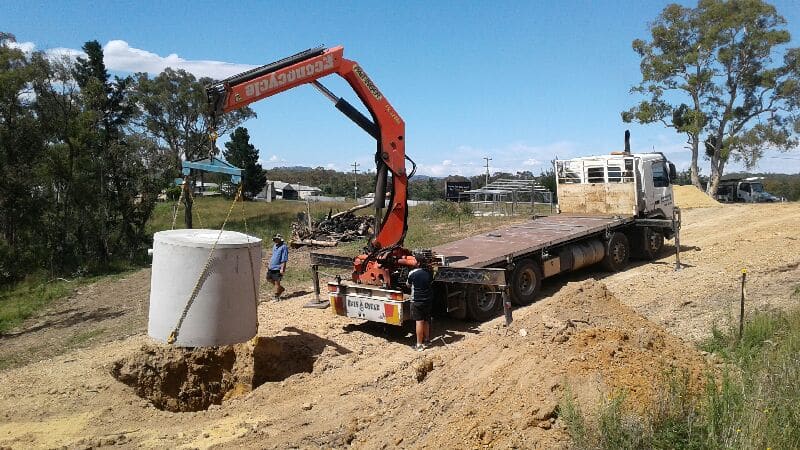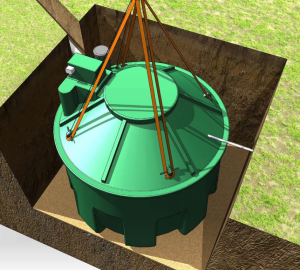Your septic system is a vital part of your home’s infrastructure, quietly working to treat and dispose of wastewater. However, many homeowners unknowingly put their septic system at risk by using common household chemicals that can harm its delicate balance. In this comprehensive guide, we’ll explore the impact of household chemicals on your septic system, provide tips for maintaining its health, and offer best practices to extend its lifespan. Whether you’re a new homeowner or a seasoned septic system owner, understanding how these chemicals affect your system is crucial for its longevity and efficiency.
The Role of Your Septic System
Before delving into the impact of household chemicals, it’s essential to understand the role of your septic system. Unlike centralized sewer systems that transport wastewater to treatment plants, septic systems treat and dispose of wastewater on-site. The system consists of a septic tank, where solids settle and are partially broken down, and a drainfield, where treated wastewater is distributed and further filtered through the soil.
Harmful Household Chemicals: What to Avoid
Many everyday household products contain chemicals that can disrupt the natural processes in your septic tank. Here are some common culprits to be mindful of:

Bleach: While bleach is an effective disinfectant, using it excessively can kill the beneficial bacteria in your septic tank that break down waste. Limiting bleach use and opting for septic-safe alternatives can help maintain a healthy balance.
Antibacterial Cleaners: These cleaners are designed to kill bacteria, which is counterproductive in a septic system where beneficial bacteria are essential for treatment. Overuse of antibacterial cleaners can disrupt the system’s ability to break down waste.
Solvents and Paints: Chemical solvents and paints contain harmful compounds that can contaminate groundwater if disposed of improperly. Avoid pouring these substances down drains or toilets.
Pharmaceuticals: Medications and personal care products, such as antibiotics, hormones, and skincare products, can also impact septic system health. Flushing unused medications down the toilet introduces these chemicals into the system.
Chlorine: Pool chemicals and chlorinated products, if dumped down drains, can kill the beneficial bacteria in the septic tank. Proper disposal is crucial to prevent damage to the system.
The Impact on Your Septic System
When harmful chemicals enter your septic system, they can disrupt the natural balance of bacteria and enzymes that break down waste. This disruption can lead to:
Reduced Treatment Efficiency: The bacteria in your septic tank play a crucial role in breaking down solids. When these bacteria are killed off by chemicals, the system’s ability to treat wastewater is compromised, leading to clogs, backups, and foul odors.
Increased Pumping Frequency: Chemicals that inhibit bacterial growth can cause solids to accumulate more quickly in the tank, requiring more frequent pumping. This not only increases maintenance costs but also puts added stress on the system.
Contaminated Soil and Groundwater: Chemicals that make their way into the drainfield can contaminate the surrounding soil and groundwater, posing environmental and health risks.
Septic-Safe Alternatives: Tips for Homeowners
To protect your septic system and promote its longevity, consider these septic-safe alternatives to common household products:
Septic-Safe Cleaners: Look for cleaning products labeled as “septic-safe” or “biodegradable.” These products are formulated to be gentle on your system while effectively cleaning surfaces.
Natural Disinfectants: Vinegar, baking soda, and hydrogen peroxide are effective natural alternatives to bleach and antibacterial cleaners. They can help keep surfaces clean without harming your septic system.
Phosphate-Free Laundry Detergents: Phosphates in laundry detergents can contribute to algae growth in drainfields. Choose phosphate-free detergents to minimize this risk.
Proper Medication Disposal: Instead of flushing medications down the toilet, take them to a local pharmacy or participate in a drug take-back program. This prevents pharmaceuticals from entering your septic system.
Limit Chemical Usage: Whenever possible, reduce the use of harsh chemicals in your household cleaning routine. Simple measures like using a drain strainer to catch hair and debris can also prevent clogs and reduce the need for chemical drain cleaners.
Maintaining Your Septic System: Best Practices
In addition to being mindful of household chemicals, regular maintenance is key to preserving your septic system’s health. Here are some best practices for homeowners:
Regular Inspections: Schedule regular inspections by a professional to check for leaks, signs of damage, and the overall condition of your system.
Pumping Schedule: Follow a recommended pumping schedule based on the size of your household and tank capacity. This prevents solids from accumulating and clogging the system.
Water Conservation: Be mindful of water usage to prevent overwhelming the system. Fix leaks promptly, install low-flow fixtures, and spread out water use throughout the day.
Protect the Drainfield: Avoid parking vehicles or heavy equipment over the drainfield, as this can compact the soil and disrupt its ability to filter wastewater.
Educate Household Members: Ensure that everyone in your household is aware of the dos and don’ts of septic system care. This includes proper waste disposal and limiting the use of harmful chemicals.
Choosing the Right Installer: Eco Septic for Your System
When it comes to installing or upgrading your septic system, choosing a reputable installer like Eco Septic is essential. Here’s why Eco Septic is the right choice for your system installation:
Expertise and Experience: Eco Septic brings years of expertise and experience in designing and installing septic systems that are efficient and environmentally friendly.
Regulatory Compliance: They are well-versed in local regulations and environmental standards, ensuring that your system meets all necessary permits and approvals.
Quality Materials and Installation: Eco Septic uses high-quality materials and employs skilled technicians to ensure a proper and durable installation.
Ongoing Support: Beyond installation, Eco Septic offers maintenance services to keep your system running smoothly. They can provide guidance on septic-safe practices and answer any questions you may have about system care.
Protect Your Septic System Today
Your septic system is a valuable asset to your home, providing efficient and reliable wastewater treatment. By being mindful of household chemicals and following septic-safe practices, you can protect your system and extend its lifespan. If you’re in need of a new septic system installation or maintenance services, consider Eco Septic for expert guidance and support. Contact Eco Septic today to schedule a consultation and take the first step toward a healthy and sustainable septic system for your home.
The impact of household chemicals on your septic system can be significant, affecting its efficiency and longevity. By avoiding harmful chemicals and opting for septic-safe alternatives, homeowners can protect their systems and the environment. Regular maintenance, such as inspections and pumping, is also crucial for septic system health. When it comes to installation or upgrades, choosing a reputable installer like Eco Septic ensures a quality and environmentally friendly system. Take the necessary steps to care for your septic system today, and enjoy a reliable and efficient wastewater treatment solution for years to co
Related Posts
- How Do Grey Water Recycling Systems Work?
- Are there advantages of having a septic tank system?
- Septic Tanks vs. AWTS: Which Is Better for Your Sydney Property?
- The Key to a Healthy Home: Understanding the Importance of Regular AWTS Maintenance
- Five reasons to use Australian-made septic tanks
- All You Need to Know About Septic Tanks in Sydney
- What Are The Advantages Of Rainwater Tanks?
- Waste Not, Want Not: Transforming Septic Tank Sludge into Resources





